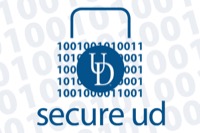General Faculty, Faculty Senate meetings
President Harker discusses ideas for future of higher learning
(Editor’s note: For more detailed information, including meeting minutes, visit the Faculty Senate website.)
10:23 a.m., Oct. 8, 2014--University of Delaware President Patrick Harker discussed the need for new ideas to help UD meet the challenges presented by the changing landscape of higher education during the semiannual General Faculty Meeting held Monday, Oct. 6, in Gore Hall, and followed by the monthly meeting of the Faculty Senate.
“As you know, we started a new strategic planning initiative this year, and it's called Delaware Will Shine,” Harker said. “It’s also really a good time for the UD community to stop and think about where we are, where we are going in the context of what we’re facing, not just here at UD, but in American higher education.”
FYI Stories
June 6: UDid It! Picnic
2FA protects you
Harker noted that in America there are some 21 million students taught by 1.5 million faculty members in more than 4,700 institutions, which collectively spend half a trillion dollars annually.
“We are a major economic factor in the U.S., as well as the critical rung on the path to the middle class for Americans,” Harker said. “Higher education is definitely worth it, but it is under some assault and people are questioning lots of things about higher education today.”
While UD admitted almost 4,200 freshmen this fall, and the UD faculty averaged $169,551 per faculty member in sponsored research for Fiscal Year 2013, Harker said the University must join other institutions in addressing significant criticisms from segments in the business and larger community.
“Cost is the number one concern, and there is a tremendous amount of pressure to reduce the cost of higher education,” Harker said. “The cost of a college education now accounts for 43 percent of disposable income for American families.”
Financial challenges facing public institutions of higher learning include a stagnant economy, declining state support, flat or declining federal support and shrinking endowments, Harker said.
“The way families used to fund their children’s education through things like home equity loans is gone,” Harker said. “The great recession of 2008 wiped out all of that, and that is why families are feeling the pressure.”
The decline in the number of potential graduate and undergraduate students in UD’s core markets in the Mid-Atlantic and Northeast regions, along with an increase in first generation and Pell Grant-eligible students, combine to put pressure on public institutions like UD, Harker said.
“For those students to attend here, they need more financial aid, which means less revenue for us,” Harker said. “Also, first generation college students need more academic support to be successful.”
The need to challenge students intellectually represents a primary concern for institutions of higher learning as they decide on core curriculum structuring and education delivery, he said.
“Across the United States, about 45 percent of college freshmen say their courses are not challenging them to do their best work,” Harker said. “That’s our work, and I want to make sure that we are creating a stimulating undergraduate environment. We need to make sure we are focused on that.”
Faculty Senate: Provost report
During the regular meeting of the Faculty Senate, UD Provost Domenico Grasso addressed concerns raised by members of the campus community regarding the University’s sexual harassment and sexual assault policies.
Grasso noted that while he could not specifically discuss the case that was the catalyst for the recent focus on those policies, he assured members of the UD community that the University will follow the law and comply fully with its policies.
“We do this to support the well-being of the victims and to make sure the appropriate steps are taken to investigate what has occurred,” Grasso said. “We take these steps because it’s the right thing to do, and to show we certainly do care about the victims.”
Grasso said the University seeks to strike a balance between creating an environment of trust based on confidentiality and creating a level of transparency without breaching the confidentiality that protects the entire UD community.
“I appreciate the energy, ideas and passions demonstrated by our entire campus community in sharing their stories, supporting one another and offering their views on our policies,” Grasso said. “I must also say that we have heard a lot from many caring voices over the past two weeks, and I want to assure you that we have listened.”
Senate members also heard a discussion on a proposed resolution to form a commission to review current policies and procedures for addressing sexual harassment and assault allegations.
The resolution was authored by Michael Chajes, professor of civil and environmental engineering, and was cosponsored by 10 UD faculty senators.
“Sexual harassment and assault has become a national epidemic, and UD is not immune to this problem,” Chajes said. “Institutions across the country are coming up with new policies. We must not turn our back on this problem.”
The sexual harassment resolution would include representation from students, faculty, staff and administrators and would be formed by the Faculty Senate Executive Committee.
The proposed commission would be given the task of making recommendations for the implementation of best practices regarding policies and procedures for addressing sexual harassment allegations.
The commission would work in concert with the Title IX coordinator’s efforts to review current policies at UD and elsewhere to ensure the UD community is educated regarding current policies.
Recommendations would be developed for consideration by the full senate no later than its April 6, 2015, meeting.
Grasso closed his report noting recently announced partnerships between UD and the Vermont Law School, which includes an articulation agreement for UD graduates seeking to enroll at Vermont Law, and with Xiamen University in China.
Senate action
During the senate’s regularly scheduled meeting, UD Faculty Senate President Fred Hofstetter, professor of education, reminded those in attendance that the organization’s open hearing on general education held Sept. 22 is available in a podcast.
The regular meeting also included the following presentations:
- “Strategic Planning Initiative: Delaware Will Shine,” by Charles Riordan, deputy provost for research and scholarship;
- “Enrollment Management at the University of Delaware,” by Chris Lucier, vice president for enrollment management; and
- “Defining Diversity at the University of Delaware,” by Carol Henderson, vice provost for diversity.
The next regularly scheduled meeting of the Faculty Senate will begin at 4 p.m., Monday, Nov. 3, in 104 Gore Hall.
Article by Jerry Rhodes








